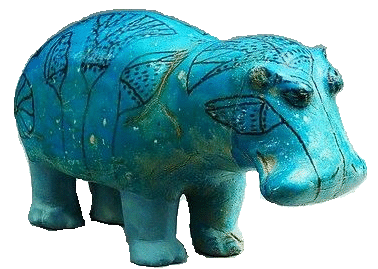
11/16 ヘーゲル「精神現象学」1807:はじめに
11/16 Einleitung,
Phänomenologie des Geistes, 1807

☆ ★このページはヘーゲル「精神現象学」の序文の後につづく「はじめに」の部分です。 INTRODUCTION, The Phenomenology of Mind (Einleitung, Phänomenologie des Geistes) ヘーゲル「精神現象学」の一般的解説は「ヘーゲル『精神現象学』1807ノート」を、参照してくだ さい。課題書とテキストについては「G.W.F.ヘーゲル『精神現象 学』1807年への入門」を参照してください。
☆
| Untersuchen
wir nun die Wahrheit des Wissens, so scheint es, wir untersuchen, was
es an sich ist. Allein in dieser Untersuchung ist es unser Gegenstand,
es ist für uns; und das An-sich desselben, welches sich ergäbe, wäre so
vielmehr sein Sein für uns; was wir als sein Wesen behaupten würden,
vielmehr nicht seine Wahrheit, sondern nur unser Wissen von ihm. Das
Wesen oder der Maßstab fiele in uns, und dasjenige, was mit ihm
verglichen, und über welches durch diese Vergleichung entschieden
werden sollte, hätte ihn nicht notwendig anzuerkennen. |
【11】
知識の真実を考察すると、私たちはそれが何であるかを考察しているよう
に見える。この研究においてのみ、それは私たちの対象であり、私たちにとってのものだ。そして、そこから導き出されるそのものの本質は、む
しろ私たちに とってのその存在であり、私たちがその本質として主張するものは、その真実ではな
く、単に私たちの知識にすぎない。本質や基準は私たちの中にあり、それと
比較され、その比較によって判断されるものは、必ずしもそれを認める必要はない。 |
☆
★ ハイデガーのコメンタリー
(11/16)ハイデガー「ヘーゲルにおける経験概念」:ヘーゲル「精神現象学」はじめに第11節の解説
☆
| ・現出する知の叙述がなにを検査するのかを直
接に問う(145) |
|
| THE ELEVENTH SECTION asks directly what it is that the
presentation of phenomenal knowledge is investigating.
However, this question is posed directly only when it asks,
not only what is being investigated but also who it is that
does the investigating. For if that which is to be investigated
is something that is known, then it is within our knowledge
for us who are investigating. With the characterization of the
science, which presents phenomenal knowledge in its appearance,
we suddenly become ourselves involved in the presentation.
It turns out that we are involved already, since
what the presentation presents is "for us." Thus there is no
way to avoid the question what role the "for us" is to play
in science. That question leads into a dimension which we
now hardly suspect.
What is it we investigate when we examine knowledge
for its truth? Truth is being-in-itself. Knowledge is being
for a consciousness. When we investigate the truth of knowledge,
we try to find out what knowledge in itself is. But our
investigation would make knowledge our object. If we were
to place knowledge before us in its being-in-itself, it would
have become a being for us. We would then grasp not the
truth of knowledge, but only our knowledge of knowledge.
Being-for-us would remain the standard by which we measure
the being-in-itself of knowledge. But why should
knowledge submit to a standard which inverts that which
is to be measured, and makes it into the measure itself? If
the presentation of phenomenal knowledge had to follow
from the consideration of the two determinations of consciousness,
knowledge and truth, then the presentation
would invert its own performance continually into its opposite. |
第
11
節は、現象的知識の提示が調査しているものは何であるかを直接的に問う。しかし、この質問は、調査の対象が何であるかだけでなく、調査を行う者が誰である
かについても問う場合にのみ、直接的に提起される。なぜなら、調査の対象が既知のものである場合、それは調査を行う私たちにとって既知の知識の範囲内にあ
るからである。現象的知識をその出現形態で提示する科学の特性を捉えると、私たちは突然、その提示に自ら巻き込まれることになる。なぜなら、提示が提示す
るものは「私たちにとって」のものだからだ。したがって、「私たちにとって」が科学においてどのような役割を果たすのかという問いを避けることはできな
い。この問いは、私たちが今ほとんど疑っていない次元へと導く。私たちは、知識の真偽を検証する際に、何を探求しているのだろうか?真実は自己存在であ
る。知識は意識のための存在である。知識の真実を調査するとき、私たちは知識そのものが何であるかを明らかにしようとしている。しかし、私たちの調査は知
識を私たちの対象としてしまう。もし知識を自己存在として私たちの前に置けば、それは私たちにとっての存在となる。私たちは知識の真実ではなく、知識につ
いての知識しか把握できなくなる。私たちにとっての存在が、知識のそれ自体である存在を測定する基準のままである。しかし、なぜ知識は、測定すべきものを
逆転させ、それを測定基準そのものにしてしまう基準に従わなければならないのか?現象的知識の表現が、意識の 2
つの決定、すなわち知識と真実の考察から導き出されなければならない場合、その表現は、そのパフォーマンス自体を絶えずその反対に逆転させてしまうことに
なる。 |
リ ンク
文 献
そ の他の情報
cc
Copyleft, CC, Mitzub'ixi Quq Chi'j, 1996-2099
☆
 ☆
☆